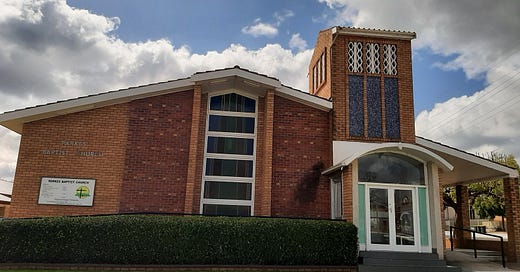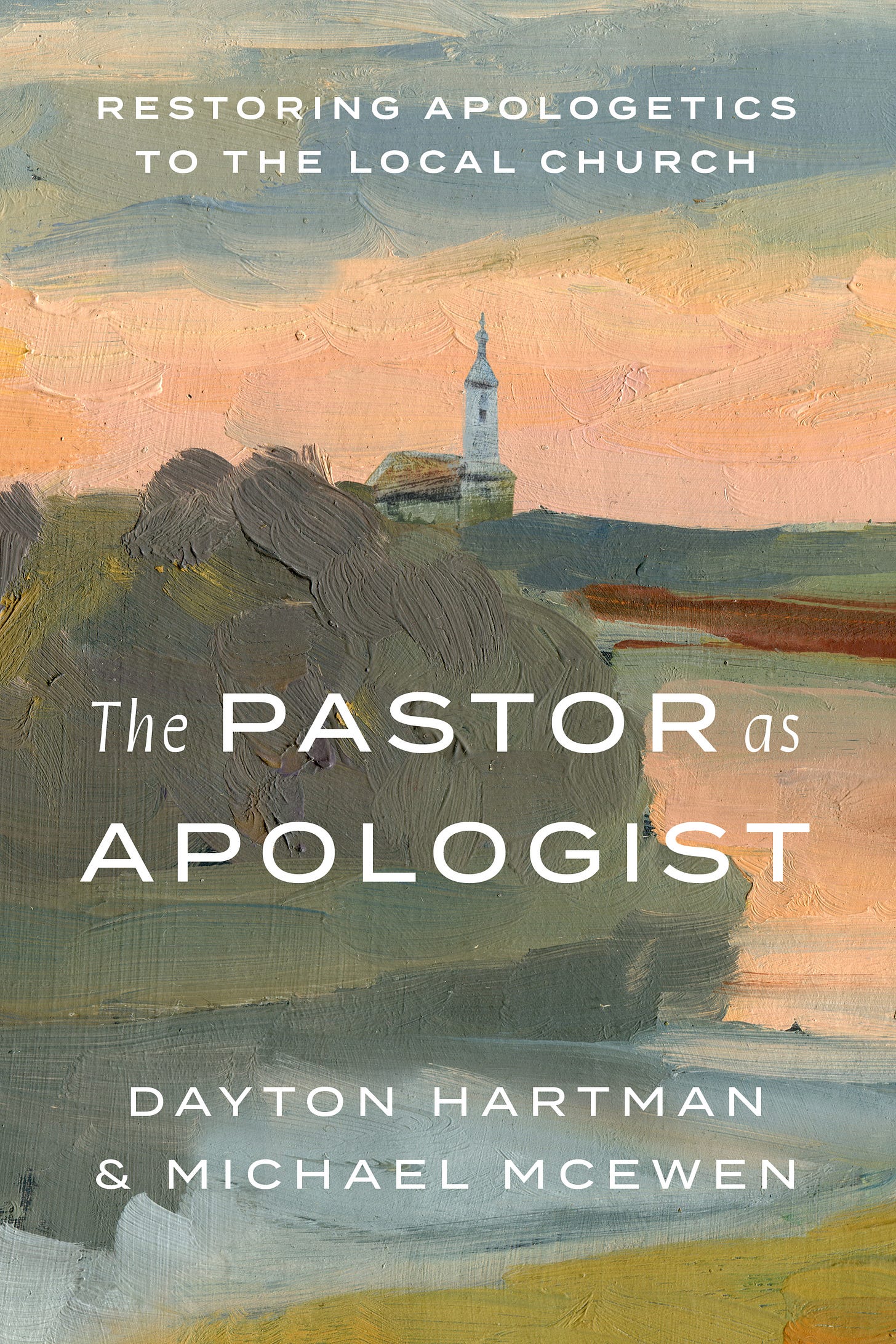I (Dayton) pastor Redeemer Church in North Carolina, and it is largely in a rural context. The nearest large Christian institution of higher learning is roughly an hour away at Southeastern Baptist Theological Seminary. The majority of those who make up our church membership are blue-collar workers with technical training. While we do have some with advanced education, primarily in the medical field, like most congregations in America our demographic is essentially composed of hard-working people with little time for research and academic engagement. What they learn regarding apologetic issues (for good and for bad) is primarily consumed passively through mass media or social media. In the digital age, accusations against the trustworthiness of Scripture, the claims of Jesus, and objective moral values have been relegated to thirty- to ninety-second sound bites with dramatic music, quick camera cuts, and authoritative tones from those who claim expertise. This methodology is highly effective in shaping the assumptions, beliefs, and doubts of entire congregations.
The response of the church must be to once again prioritize formative disciplines that prepare and teach congregants how to think. This is not a quick process; most things of value take time. Instead it is a lengthy and time-consuming effort to shape worldviews. So be committed for the long haul.
This is a necessary undertaking because, as James Sire notes, everyone has a worldview that shapes every area of thinking from the mundane “Where did I leave my watch?” to the profound “Who am I?” Every question is answered through a worldview. The question then is how is the local church shaping worldviews in general? While that is beyond the scope of this [discussion], certainly shaping worldview as it relates to addressing apologetic issues in culture is essential to shaping and forming a right worldview.
What we want to lay out . . . is not a one-size-fits-all template for incorporating apologetic training and worldview-building efforts in every church. It is, however, the approach that is bearing fruit in our very normal church, in a very normal context, with very normal people. In short, we do believe that some contextually varied version of our approach would be effective in most churches.
Apologetic Training
Redeemer Church is intentionally simple. We gather on Sundays, and we scatter during the week to live our lives on mission and to meet in small groups for mutual encouragement. The aim is to only gather for a limited number of hours per week so that they can spend the bulk of their time living out their identity as missionaries. However, a few years ago we noticed a gap in our ability to effectively build biblical literacy and to shape worldview, so we launched The Redeemer Institute. Our institute acts as a kind of Christian education ministry within our church.
Our institute has a partnership with Southeastern Baptist Theological Seminary to provide opportunities for class credit for those who would like to eventually pursue more formal training. While a partnership like this is a blessing, it is not necessary to accomplish the end goal of training.
We offer opportunities for brief (usually seven to twelve weeks in length) but rigorous Bible studies over short books of the Bible or even a single chapter. Additionally, we provide core classes that resemble a seminary course with a syllabus, textbooks, reading schedules, class projects, and lengthy lectures. For some, the classes are a daunting first step, so we host single-evening events that have a speaker on a specific subject, speaking on a popular level, with light refreshments and even free resources (e.g., books) available. All of this is meant to be part of the process of shaping and forming people’s hearts and minds. We will explain how each of these elements function together.
Apologetic Classes
We ask people to register for classes through our website, just like they would if they were participating in a seminary setting. Once registered, they pay a small fee to cover the cost of their books. We have found that paying for textbooks provides the necessary incentive for people to prioritize the totality of the courses. We usually offer one book that would fit the description of a traditional textbook, while the accompanying book is more of a popular-level treatment of the class subject.
In our current format, the class gathers for a few lectures per semester, and each lecture lasts approximately two hours. At the end of each class there is an opportunity for questions and answers. Further, those teaching each class make resource suggestions (e.g., books, podcasts, videos, blogs) during each lecture to continue to supply congregants with the tools they need to grow. For our apologetics class we follow this outline for content:
1. What is apologetics?
2. What is the apologetic mandate?
3. How do I know God exists?
a. The moral argument
b. The cosmological argument
c. The transcendental argument
4. How do I know that Jesus is the Messiah?
a. The claims of Jesus (a case for his deity)
b. The evidence for the bodily resurrection
5. How can I know that the Bible is trustworthy?
a. Manuscript history/the canon
b. An interaction with skeptics (Bart Ehrman and others)
c. Internal consistency
d. Church history
6. Apologetic issues and evangelism
a. Hot-button cultural issues
b. How to engage skeptics
c. Sharing the gospel while navigating questions
d. A call to gospel living
The aim with this course is to regularly remind those in the class that the end goal is not to develop a clever or snarky response to the office atheist or the uncle who comes to Thanksgiving and makes fun of your faith. The goal of the class is to be equipped and grow in confidence as we submit to the Holy Spirit’s leading for the purpose of removing roadblocks to faith. We start our first class session by writing down on a whiteboard the name of an unbeliever that each student wants to engage in a gospel conversation prior to the end of the semester. Throughout the course we pray over those names. Similarly, our class assignments are largely centered around students reflecting on how to best summarize what they are learning in a way that they could share it with a skeptic over a cup of coffee. The purpose of the class is not information consumption; it is missional mobilization.
Single Events
For many, the idea of registering for a class elicits flashbacks of dimly lit high school hallways, microwaved pizza lunches, and those marbled notebooks we all used in school. To put it bluntly, taking a class is not something many people want to do voluntarily. This is where a single-evening event that incorporates worship and a time for community could be a strong on-ramp to more rigorous training.
We have held single-evening events with great success. For example, after a few weeks of promoting, we hosted an event at night that explored the minimal facts approach to arguing for the historicity of Jesus’s resurrection. We coupled it with worship, a time for community, snacks, and childcare, and we kept the lecture portion to thirty minutes. From that we offered an opportunity to go further by taking the apologetics class through our institute. A few dozen people registered for classes out of that event.
We have also held events where we brought in a noted speaker or expert on a topic and had them speak for thirty minutes, followed by an on-stage interview that interacted with what they taught. Then we gave everyone in attendance a copy of the expert’s book with a call to go further in one of our classes. What we found is that a very high number of those in attendance, at the very least, read the donated book.
A basic outline for one of these events could be something like this:
1. Welcome and overview to the evening
2. Worship through song
3. Lecture/teaching (thirty minutes)
4. Follow-up interview (optional, fifteen minutes)
5. A call to go further with a class (a clear action step is necessary)
6. Dismiss to time of fellowship
A well-planned event such as this could stir interest to go deeper in studying apologetic issues (or any subject for that matter).
— Dayton Hartman (PhD, North-West University) serves as lead pastor of Redeemer Church in Rocky Mount, NC.
— Michael McEwen (PhD, Southeastern Baptist Theological Seminary) is the content editor for B&H Academic and serves as the associate pastor of equipping at First Baptist Church in Starkville, MS.
image: denisbin on Visualhunt.com
---
Excerpted from The Pastor as Apologist: Restoring Apologetics to the Local Church by Dayton Hartman and Michael McEwen (B&H Academic, 2024).
“Among the many responsibilities of a pastor, the discipline to give a reason for our Christian hope remains central to our preaching, shepherding, and counseling. This, as Hartman and McEwen suggest, is pastoral apologetics. For a discipline that sometimes garners the reputation of mere intellectual defensiveness, Hartman and McEwen offer a winsome and humble approach for pastors that is biblically grounded, historically informed, anchored in the confidence of Christ’s resurrection, and highly practical. As a seminary professor and pastor, I’m thrilled to see such a helpful resource to remind and equip pastors in the important task of defending the faith.”
—Benjamin Quinn, associate professor of theology and history of ideas and associate director of the Center for Faith and Culture, Southeastern Baptist Theological Seminary
Find The Pastor as Apologist at B&H Academic, Amazon, Barnes & Noble, Christianbook.com, and other booksellers.
*sponsored




